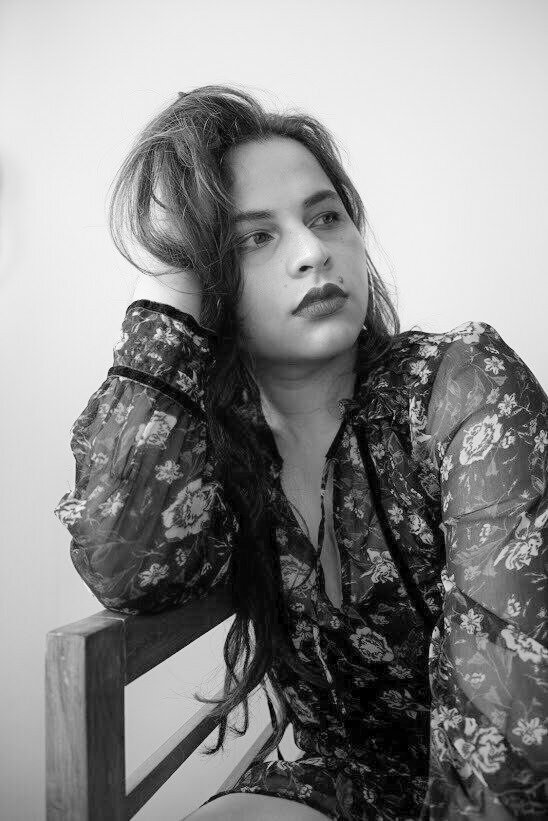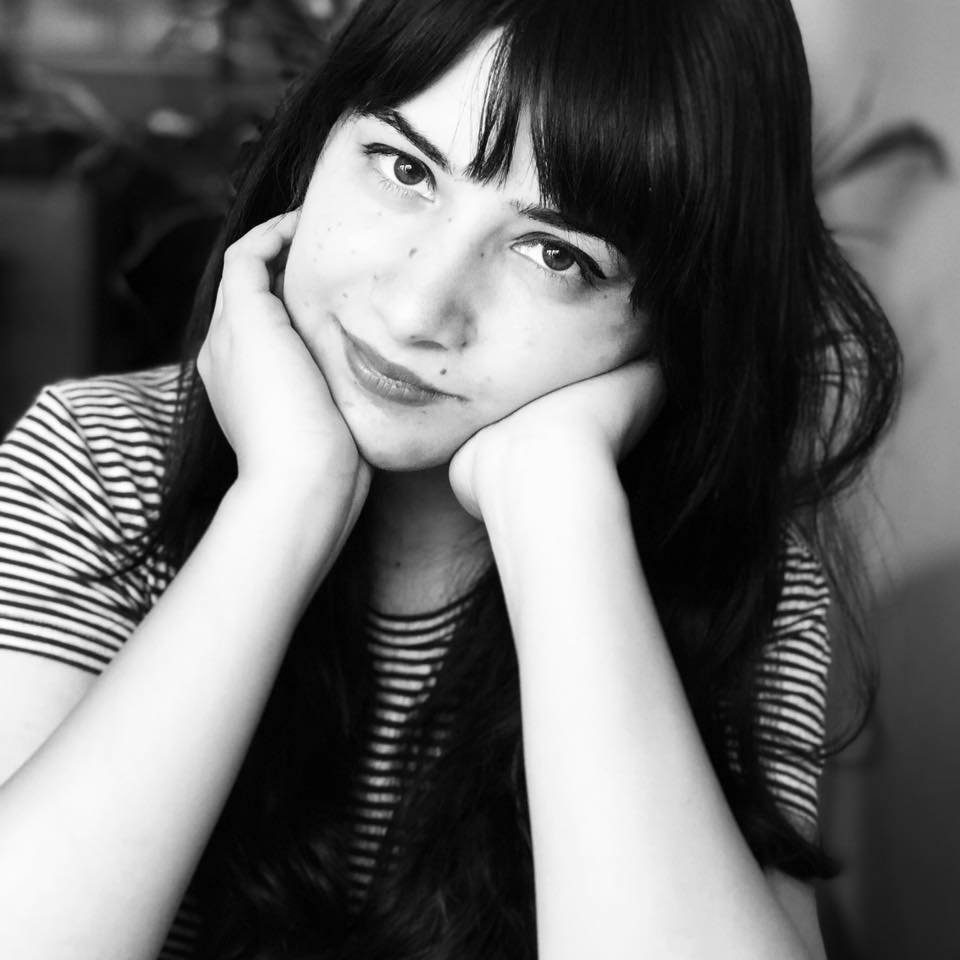navigating a layered existence
a conversation between Srishti and Madeeha
A couple of years ago, Agha Shahid Ali’s ‘The Half-Inch Himalayas’ arrived at my doorstep. Madeeha sent it to me. Set in the backdrop of nostalgia that travels across Delhi, Kashmir, the past and the alternative: the poems are hauntingly embroiled in lyricism and grief. “Kashmir sinks into my mailbox // a home a neat four by six inches.”
My conversations with Madeeha over the last 6 years have unwinded our personal narratives of violence, freedom, pain and home. She has this incredible ability to trace the threads of longing and hope through literature, political activism, feminist solidarity and poetry.
Over the last month, Madeeha and I spoke over emails between Bangalore and Kashmir, surrounded by another flurry of books between her and me.
Here are some excerpts from that conversation, and a beautiful poem she’s written-
I am always angry-
is this also a luxury? You tell me,
what to see, how to feel, and when to let it go.
trapped in one device, many ‘versus,’
the blood boiling without a vessel,in every room, at every temperature, every time,
hear this: I do not know how timber turns to ash,but I am always at the tipping point with you,
Is it something my mother said to me as a child?
that no one would love me if I didn’t try,love, a race, And I-missing the prize,
you say I shouldn’t mind,
how the world doesn’t end for us, when it ends for others,
maybe, it’s for the best.
I am always angry,
or is it just grief that hasn’t found a place to rest?
On Home
Srishti: Over the years that I have known you, you've lived in multiple cities across the world. What does home mean to you? Where does a home go when you're not in it?
Madeeha: First home, Kashmir, is a warzone. When you are born and raised in such a place, you realise that you cannot truly escape a war. It follows you everywhere. So, even when I lived in other places, I always carried the weight of that war with me. Maybe working on issues relevant to home also has something to do with it. Or that news from Kashmir is mostly of death and dispossession, but the fact remains: I can’t ever manage to disconnect from it. And to be honest, why should I? It reminds me to not let my privilege or ability to escape (physically) take away from my responsibilities of laying siege to the empire that is so determined to efface my people from their lands, their histories, their identities, and their dignity. So, to answer your question more directly, home is everywhere and nowhere. Home is Patiala skies and Kashmir breeze, Dutch winds and Chinar leaves, lovers meeting in distant lands, bicycle rides, and grandmother’s hands. Home is a mosaic of everywhere I have been and want to be. But most importantly, home is to be free.
On politics, pain, and love
Srishti: A particular tension emerges when your personal narrative is juxtaposed against the socio-political history of Kashmir. How would you characterise this tension, and how do gender, class, and religion inform whose pain is made visible, what pain is allowed to look like, and whether that pain is treated with compassion on not?
Madeeha: I grew up as part of a privileged class, with an unprivileged gender, in the midst of a heavily militarized environment, where people live under constant threat. Naturally, while my class shielded me from the socio-economic realities of living under occupation, my gender and identity as a Kashmiri Muslim constantly put me in contact with the normalised brutalities of life in Kashmir. I am aware that the degree of harm and loss varies, as you move from city to village, from uptown to downtown, from household to household. To give you an example, I witnessed the early trauma of being stuck at home under an indefinite curfew for many months in 2010, unable to attend school, meet friends or move out. At the same time, not so far away from me, 17-year-old Tufail Mattoo, an 11th standard student, was mercilessly killed by a police tear-gas shell that hit his head while returning home from a private tutor. During that summer, like him, dozens of Kashmiri youth were murdered in cold blood. I remember every day the newspapers reading like obituaries, deaths mere statistics (even unacknowledged), injustice writ large on every page. And this was not the first or the last time.
As a result, the political is personal (and vice versa). Being a Kashmiri, I constantly navigate a layered existence, where gender, class, religion, and ethnic identity, regularly need to be placed in the broader context of agency and oppression. It is a complex relation, which can only be understood with nuance and empathy. But it is an important one-critical to any understanding of visible/invisible pain and true compassion.
Srishti: Often when you and I talk about conflict in Kashmir- me a daughter of an army officer and you the daughter of a Kashmiri man- a sense of hopelessness emerges, but never without feminine gentleness and empathy. These two threads, these competing narratives have somehow integrated into a friendship that extends beyond but never without the dissonance of our experiences. Does political and feminist activism imbibe itself in your friendships? How do you navigate feminist principles and political differences within the microcosm of love?
Madeeha: Most often when we talk of opposing identities and experiences, we focus on individuals rather than institutions or the collective behind them. This was not our case. When you and I met, we befriended, discussed, disagreed, and bonded over our stories, fully mindful and cognizant that our experiences were drawn from interactions with an inherently violent and patriarchal institution, which was simply beyond our control. So, even though our political identities varied, our female experiences brought us together.
This is also something that bell hooks talks about when she writes on feminist solidarity and quotes Ama Ata Aidoo (from Our Sister Kill Joy) to say that our history and present lay obstacles in the way of love and that we cannot enjoy even our differences in peace. As race has had an impact on the construction of gender identity, the oppressive aspects of occupation also play a dynamic role in interactions between women from the oppressor and the oppressed territories. Inadvertently, there is a difference in the way you and I seek freedom, where my foremost fight is to exist.
In such a case, a true friendship cannot simply coexist amidst differing political identities, solely based on female solidarity. Especially when the identities are directly pitched against each other. To borrow from James Baldwin, ‘We can disagree and still love each other unless your disagreement is rooted in my oppression and denial of my humanity and right to exist.’ This is to simply say, that friendships, especially feministic friendships are built upon the foundation of recognising and preserving this mutual humanity, and must therefore in all cases shun practices that deprive of it.
Your Newsletter
Srishti: For as long as I've known you, you've been a lover of arts. You've graciously given me some bits of your poetry, and we've spoken about how it has served as a refuge for you. You're also coming up with a newsletter, which I am excited to read. Tell me about your relationship with art, and the ethics/end goal/intent of how you want to put your art out into the world.
Madeeha: Art, poetry, reading, has been a great refuge for me since childhood. I had a blog during my teenage years, which was a cathartic endeavour for me at the time. However, I stopped updating it once I began law school when academic writing took over. Even though I continued to write for myself, I seldom shared it with others. With this newsletter, I wish to begin again. I am a lover of stories, and I believe this newsletter is my (mad-hearty) attempt of sharing them with the world. Stories in the form of poetry, essays, movie reviews, political commentaries, or any other form that interests me. It is a personal space, but I do hope that others find themselves in it.
Madeeha Majid is a human rights lawyer based in Kashmir. She believes in imagining and striving for a better world, and reading and writing while doing so.
Madeeha’s newsletter can be found here: https://madheart.substack.com/


